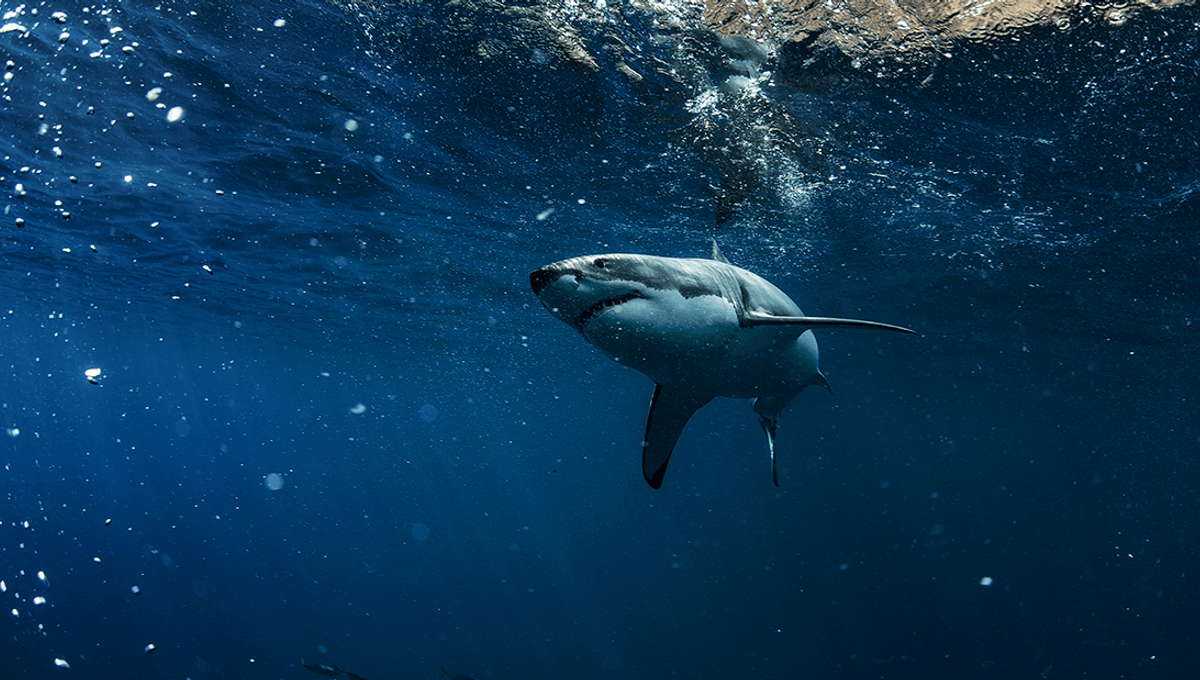
If you’ve ever seen Jaws you’ll know that few animals strike fear into the human psyche quite like a great white shark. These epic ancient apex predators swim around in cool coastal waters and are the largest predatory fish on the planet. One is particularly massive, and she’s called Deep Blue.
Despite their size, great white sharks (Carcharodon carcharias) don’t deserve all the bad PR they get. They are typically around 4.5 meters long (15 feet) and can weigh up to 2,267 kilograms (5,000 pounds). Extremely well adapted for a life patrolling the oceans, great white sharks can reach speeds of around 24 kilometers (15 miles) per hour. And if you’ve ever seen a nature documentary you’ll know they can leap totally out of the water when chasing prey.
Seals, sea lions, other sharks, and small-toothed whales are all on the menu for a great white, with most cases of shark attacks on humans involving a case of mistaken identity where a human swimmer looks a lot like a seal to a hungry shark. Around 300 hundred serrated teeth arranged in rows help the shark tear through tough seal flesh.
The world’s biggest recorded great white shark is a female affectionately named Deep Blue. She measures over 6 meters long (20 feet) and scientists think she may already be over 50 years old. She even featured in a Shark Week episode in 2014. Believed to be first seen in the 1990s, though not properly recorded, Deep Blue was also spotted off the coast of Mexico’s Guadalupe Island, by Mauricio Hoyas Padilla. It wasn’t until footage was released of her on Facebook that she rose to fame after the Shark Week episode aired.
Deep Blue has several tell-tale marks across her body that help scientists recognize her. It’s thought she returns to the same island area to breed around every two years. In 2019, marine biologist and shark conservation advocate Ocean Ramsey claimed she swam alongside Deep Blue though this has not been confirmed.
More recent reports of Deep Blue have been few and far between but there is no reason to suspect anything dire. While Deep Blue may be one of the largest fish in the ocean, these creatures can still be elusive and NOAA estimates a great white shark lifespan to be around 30-70 years so there’s every chance Deep Blue is still alive and well in the ocean to this day.
Source Link: World's Biggest Great White Shark Is A Hecking Chonker Called Deep Blue